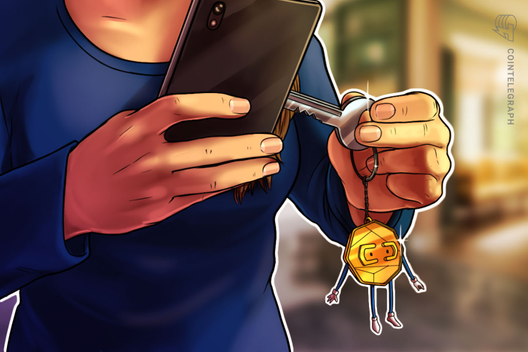
North Korea is allegedly developing its cryptocurrency for bypassing U.S. sanctions, but experts point out other reasons for this initiative.
It seems that a movement to create a national cryptocurrency is gaining momentum in Asia. Following China, the North Korean authorities announced their readiness to issue digital money and even indicated the availability of all required resources — both technical and human — to implement this task.
Will the government of the most isolated country in the world go further than its Asian neighbor, or is this just another attempt to scare the United States? Among the reasons for issuing a North Korean digital coin, experts name the circumvention of Western sanctions, money laundering, speculation and even the manufacturing of weapons of mass destruction.
All for cryptocurrencies?
In recent years, North Korea has become very interested in creating its own cryptocurrency and has a sufficient level of competence to move forward with this plan, as Alejandro Cao de Benos, a special representative of the Foreign Ministry of the Democratic People's Republic of Korea, said.
According to Cao de Benos, local experts are now studying various digital assets in order to determine which of them the value of the future cryptocurrency should be tied to. He also said that there were no plans for it to be backed by the North Korean won and that it will be “more like Bitcoin or other cryptocurrencies.”
But that's not all. On Sept. 10, Cao de Benos tweeted that the North Korean authorities have allowed citizens to own cryptocurrencies, and local developers “are designing crypto wallets and other related apps right now.”
It was also reported that other countries have helped North Korea in the technical implementation of its initiative. In particular, Cao de Benos referred to several foreign companies that have already signed contracts with the DPRK authorities for the development of blockchain systems for education, health care and finance sectors.
Although he didn’t provide any names, the Korea Development Bank (KDB) had pointed to the IT firm Joseon Expo a year earlier. The company allegedly created a platform for the exchange of cryptocurrencies between interested parties on the order of the North Korean authorities.
Despite bold statements by Cao de Benos, at the official level, the DPRK has so far refused to recognize or refute information about the intention of the country's administration to issue a national cryptocurrency.
Why North Korea may need its own cryptocurrency?
According to Kayla Izenman, a research analyst at the Center for Financial Crime and Security, the country has the necessary experience and resources to launch its own cryptocurrency. As for the reasons behind the initiative, experts tend to mostly come up with negative scenarios — from bypassing the international sanctions and money laundering to speculation and financing the weapons of mass destruction.
Bypassing U.S. sanctions?
According to many media outlets and Cao de Benos himself, Pyongyang needs digital assets to circumvent international sanctions. With its own cryptocurrency, the DPRK may be able to break away from the international financial system dependency. In an interview with Cointelegraph, Cao de Benos noted two other advantages of cryptocurrencies — transaction speed and convenience — as an additional argument in favor of the initiative.
Analysts believe that for Pyongyang, digital money is a new way to circumvent sanctions because they are "harder to trace, can be laundered many times, and are independent of government regulation." This means that the DPRK may have the opportunity to trade with many countries around the world.
Sean King, vice president of the Park Strategies consultancy in New York, pointed out the “sanctions-proof” nature of cryptocurrencies, while Steven Kim, a researcher at the Jeju Peace Institute in South Korea, said:
“The cryptocurrency is the ideal form of money for North Korea because it can be moved quickly and anonymously across borders and can be used to buy goods and services online or converted to hard currency.”
While evading U.S. sanctions is the key factor behind the North Korea’s crypto initiative, Jason Tucker-Feltham, founder of blockchain security firm London Crypto Services, suggested to Cointelegraph that U.S. sanctions “have led the country to pursue alternative means of value transfer,” but this may not be the only benefit of digital assets noticed by North Korea. He went on:
“Economies and central banks for which no US sanctions are in place (e.g. the IMF) have expressed interest in developing their own crypto-assets, meaning that the benefits in utilising DLT extends far beyond bypassing traditional payment mechanisms.”
Moreover, as many analysts claim, North Korea may be backed by other countries — such as Iran, Russia or Venezuela — which are already exploring national digital assets to bypass the U.S. sanctions.
Cryptocurrencies allow for independence, which makes it almost impossible for the U.S. financial regulators to trace or control such forms of money. It's therefore possible to transact cryptocurrencies on unregulated cryptocurrency exchanges that don't force users to pass Anti-Money Laundering (AML) procedures. This makes it easier for hackers to freely and anonymously exchange their digital assets.
Related: North Korea and Crypto: Is the Regime Responsible for Major Hacks?
Moreover, it’s the U.S. authorities that forced North Korea to use cryptocurrencies, as suggested by Jose Pagliery, a CNN investigative reporter, who said, “The UN and the international community have locked them out of banks so whereas they used to hack into the SWIFT system in banks.”
Some experts claim North Korean hackers need and allegedly already use more transparent cryptocurrencies than Bitcoin (BTC) to bypass the sanctions. Izenman named Monero (XMR) and ZCash (ZEC) in particular:
“Cryptocurrency especially if you’re using such coins as Monero or ZCash that are privacy coins that aren’t as transparent as Bitcoin can be used and traded. And they don’t need to go through the fiat system, they don’t need to touch the dollar, they don’t need to touch a bank.”
Speculation
Being a country with a fairly low GDP ($28 billion compared to South Korea’s $1.54 trillion), North Korea has long been looking for and applying various ways to raise foreign capital. And cryptocurrencies are no exception.
It is being widely reported about how the DPRK uses several methods to obtain digital coins — from mining farms and masternodes to cryptojacking and participation in new, promising projects. Specifically, North Korea began mining Bitcoin in May 2017, which coincided with the rise of Bitcoin. Steven Kim, a researcher at the Jeju Peace Institute in South Korea, said, "If there is a way to exploit cryptocurrencies for financial gain, the DPRK will figure it out and move aggressively to do so”
Many analysts noted cryptocurrency’s liquidity as a decisive factor in Pyongyang's interest in accumulating and creating digital assets, including CNN’s Richard Quest:
“There’s also reason for them to hack into the mining of Bitcoins and steal those Bitcoins as well because the price has been skyrocketing. [...] This is quite liquid. They can cash those Bitcoins out on the market and get dollars.”
Recently, financial crimes and AML experts Lourdes Miranda and Ross Delston released a detailed explanation of how the DPRK can use cryptocurrency for money laundering, which was later removed, however, from the website. In response to the question whether North Korea could create its own blockchain for manipulating crypto transactions domestically, they both answered, yes.
Nuclear weapon financing?
North Korea began looking for ways to finance military programs back in the 1970s, when the country was on the verge of default. As a result, a new structure was established, aimed at getting foreign currency for the DPRK authorities. According to a report prepared in 2007 for the U.S. Congress, such activities helped North Korea raise $5 billion.
On Aug. 13, the United Nations Security Council released an expanded report, according to which the amount of funds stolen by North Korea reached $2 billion. The authors of the report claimed that the government of Kim Jong Un hacked the accounts of banks and cryptocurrency exchanges in 17 countries in order to finance weapons of mass destruction programs, claims which the North Korean regime strongly denied. At the same time, cyber attacks were reportedly carried out under the leadership of the country's General Bureau of Intelligence.
The U.S. and South Korea believe that the DPRK’s online army consists of 20 to 30 elite cyber saboteurs specializing in cryptojacking. According to general estimates, the total number of cyber specialists may vary from 1,800 to 6,000 hackers.
The North Korean government itself rejects such allegations. Speaking with Cointelegraph Cao de Benos called such statements “ridiculous”. He added:
“The DPRK is already a nuclear power and we have enough to secure the safety of the country. This is why we are in negotiations with the USA.”
Meanwhile the local media says that the country has nothing to do with attacks on cryptocurrency exchanges and, furthermore, doesn’t support any hackers. In particular, a representative of the DPRK National Coordinating Committee on combating money laundering and financing of terrorism said:
“Such a fabrication by the hostile forces is nothing but a sort of a nasty game aimed at tarnishing the image of our Republic and finding justification for sanctions and pressure campaign against the DPRK."
Money laundering?
In their report, Miranda and Delston say that they are sure that Pyongyang is developing its own cryptocurrency in order to cash out money:
"DPRK can create their own cryptocurrencies or use established ones like Bitcoin. Having their own cryptocurrency would also facilitate their ability to open online accounts under the guise of a non-adversarial nation using anonymous communication to conceal the user’s locations and usage on the internet.”
The most difficult part in such a process, according to experts, is converting cryptocurrencies into traditional fiat funds anonymously. And North Korea’s own cryptocurrency system would most likely be able to solve this issue, as suggested by Miranda and Delston:
"For example, DPRK could open an online wallet using a Russia-based service, transfer its cryptocurrency into a Bulgaria-based wallet service and then transfer it again into a Greece-based wallet service, all through anonymous communication and using their own blockchain."
In a conversation with Cointelegraph, Tucker-Feltham explained why North Korea would likely build a private blockchain that wouldn’t be similar to Bitcoin:
“In view of it being a fully public blockchain, the Bitcoin network is poorly suited for facilitating money laundering, as upon identifying the owner of one public key all associated transactions can subsequently be traced. Furthermore, there is a blossoming industry in chain-analytics that looks to track behaviours on public blockchains. Such traits underpinning the Bitcoin blockchain may have factored into the decision to develop an entirely new blockchain; were North Korea to be developing a crypto-asset with the intention of its being untraceable, it stands to reason that their blockchain will not be public.”
When asked by Cointelegraph to comment on this rumor, Cao de Benos said:
“As for money laundry that's another stupidity. We don't need to launder anything because the DPRK is the most sanctioned country in the world and we are not able to trade and use the traditional financial system.”
What are they doing at blockchain conferences?
Along with the active exploitation of cryptocurrencies, DPRK authorities are conducting closed blockchain conferences and training courses. Specifically, in 2017, Pyongyang University of Science and Technology held an accelerated cryptocurrency course for elite students, taught by Federico Tenga, an Italian developer. Tenga himself declined to comment on the news about the North Korean cryptocurrency, explaining that he had previously had trouble after communicating with DPRK journalists.
In April of this year, North Korea held the nation’s first international conference on blockchain technology and cryptocurrencies, bringing together foreign experts from around the world. It has been reported that participants paid 3,300 euros for the program, which included a tour to the demilitarized zone dividing North and South Korea. Nevertheless, there are no independent sources that would confirm how successful the conference was — as access was denied to any outside observers.
The organizers themselves said that the first event was so successful that they decided to hold a second one in February 2020. The conference is scheduled to last eight days and surpass the previous event in its scope. Cao de Benos emphasized that the event will see a big number of Korean government officials:
“The conference serves as a meeting opportunity but from there we will develop long lasting collaboration and business with professionals and companies. The participants in the Korean side are all working for the government in different important institutions in finance, logistics, trade, etc.”
Meanwhile, participation is still prohibited for citizens of South Korea, Japan, and Israel, while U.S. residents are allowed to attend the conference. Those wishing to attend will need to send a CV, a passport scan and home address, though it’s not clear where this all should be sent, as there are no official email addresses or websites.
Independent and anonymous analysts in South Korea believe that the main objective of the Pyongyang Blockchain and Cryptocurrency Conference is to show that North Korea will develop and promote cryptocurrencies if the U.S. does not begin to move forward in bilateral negotiations.
Some in the media have said it is very likely that Russian experts will appear at the conference, which will testify to the seriousness of the cryptocurrency activities of the DPRK as a whole.
So, will a crypto be released?
Independent experts argue that Pyongyang has both the necessary resources and the technological experience to successfully develop a state cryptocurrency. Martin D. Weiss, the founder of Weiss Ratings, said in a conversation with Cointelegraph that there is every chance it could happen:
"The question is whether it would be possible for adversarial or rogue nations to use state-backed digital money to help establish an alternate system of international transactions, thereby weakening the West's ability to use sanctions as leverage against them. The answer is yes, provided they can handle large volumes."
Weiss also noted that in the future, some countries could unite and create a single payment system based on cryptocurrencies. Meanwhile, representatives of the state-run Korean Development Bank expressed a completely different point of view in their report, referring to the country's shortage of quality experts, computers and electricity.
Also, according to a senior fund manager at a U.S.-based investment bank in Seoul, the DPRK’s closed internet network may interfere with the implementation of the government’s plan, "Because only limited Web access is available in the North, Pyongyang can't take advantage of cryptocurrencies in terms of unrestricted and anonymous transactions."
Whether a national cryptocurrency would help North Koreans get out of its current economic troubles remains under question, considering other countries’ experience in this direction. For instance, attempts by Venezuela to save its economy with the state-owned cryptocurrency Petro haven’t yet yielded any obvious success.
Related: Venezuelan Petro Against US Sanctions: History and Use of the Crypto
Pyongyang may also have to convince partner countries to use its new cryptocurrency to circumvent Western sanctions. And this is not so easy to do when companies around the world use the U.S. dollar, according to Annie Fixler, a sanctions and illicit finance expert at the Washington, D.C.-based think tank Foundation for Defense of Democracies, who said:
“Washington’s use of sanctions now is reliant on the dollar’s role in the global financial system — U.S. sanctions have significant secondary effects because non-US banks can’t risk losing access to dollar transactions by doing business with sanctioned persons."
from Cointelegraph.com News https://ift.tt/2mTUVi9































